Facebook Zero
Facebook Zero is an initiative undertaken by social networking service company Facebook in collaboration with mobile phone-based Internet providers, whereby the providers waive data (bandwidth) charges (also known as zero-rate) for accessing Facebook on phones via a stripped-down text-only version of its mobile website (as opposed to the ordinary mobile website m.facebook.com that also loads pictures). The stripped-down version is available online only through providers who have entered the agreement with Facebook.[1][2][3][4] Photos are not loaded by default. Users may still choose to view them by clicking through but regular data charges apply to photo use.
.svg.png) | |
| Owner | Facebook, Inc. |
|---|---|
| Created by | Mark Zuckerberg |
| URL | 0 |
| Advertising | Yes |
| Commercial | Yes |
| Registration | Required |
History
Plans for Facebook Zero were first announced at the Mobile World Congress in February 2010 by Chamath Palihapitiya.[5] In collaboration with 50 mobile operators around the world, it was officially of launched on May 18, 2010.[1] The scheme is considered zero-rated or the practice of offering free data for some services, filtering out others.[6]
The Facebook model featured a stripped-down version of the platform, which was made available to all mobile phone owners.[7] It was offered in emerging markets to address the issue of data caps. A report explained that Facebook Zero subsidized phone data for a period, allowing for free user access.[7] Facebook also provide technical assistance to partner carriers so that the process incurs low cost.[8] In some countries, Facebook Zero is offered as part of a carrier's Free Basic data plan that could include access to Google and Wikipedia as well as localized content.[9]
Facebook Zero became controversial in some countries due to several issues such as net neutrality.[6] For instance, India's Telecom Regulatory Authority (TRAI) bans zero-rated services on account of "discriminatory tariffs for data services on the basis of content”.[10] A criticism also stated that Facebook is practicing digital colonialism because it is not introducing open internet but building a "little web that turns the user into a mostly passive consumer of mostly western corporate content”.[8]
Several carriers offer Facebook Zero:[1]



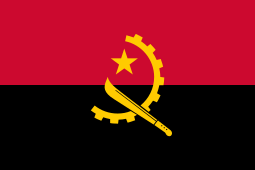


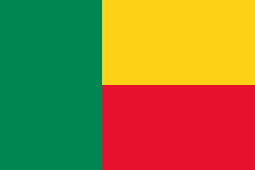
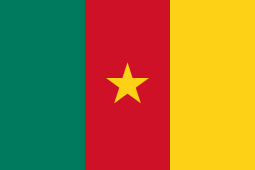
.svg.png)

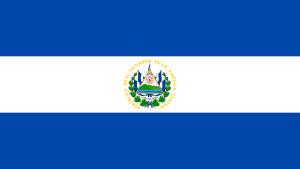
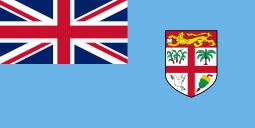




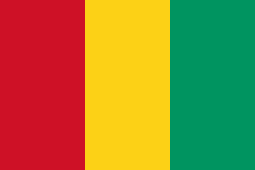


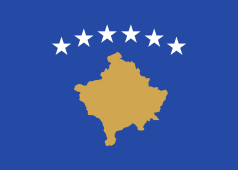


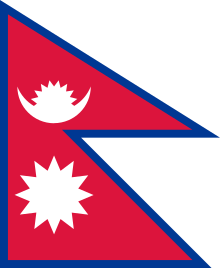

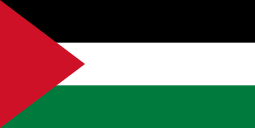






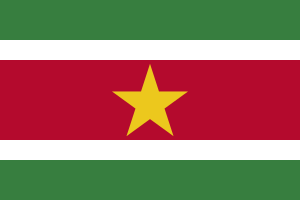
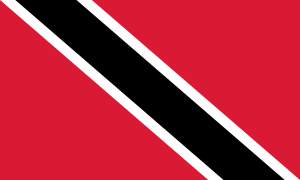


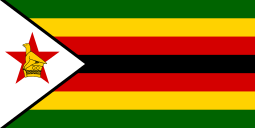
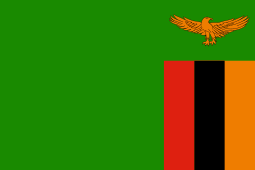
Reception and impact
An article by Christopher Mims in Quartz in September 2012 stated that Facebook Zero played a very important role in Facebook's expansion in Africa over the 18 months following the release of Facebook Zero, noting that data charges could be a significant component of mobile usage cost and the waiving of these charges reduced a significant disincentive for people in Africa to use Facebook.[29]
Facebook Zero was also credited as the inspiration for a similar initiative undertaken by Wikipedia titled Wikipedia Zero.[30][31][32]
Google Free Zone, a similar service launched by Google in November 2012, was viewed by Internet commentators as both inspired by and a potential challenge to Facebook Zero.[33][34][35][36]
The Subsecretaría de Telecomunicaciones of Chile ruled that zero-rating services like Wikipedia Zero, Facebook Zero, and Google Free Zone, that subsidize mobile data usage, violate net neutrality laws and had to end the practise by June 1, 2014.[37][38]
In 2015, researchers evaluating how Facebook Zero shapes information and communication technology use in the developing world found that 11% of Indonesians who said they used Facebook also said they did not use the Internet. 65% of Nigerians, 61% of Indonesians, and 58% of Indians agree with the statement that "Facebook is the Internet".[39]
See also
- Free Basics by Facebook
- Alliance for Affordable Internet
- Facebook for SIM
- Google Free Zone
- Twitter Zero
- Wikipedia Zero
References
- Murlidhar, Sid (May 18, 2010). "Fast and Free Facebook Mobile Access with 0.facebook.com". Facebook. Archived from the original on January 16, 2014. Retrieved January 15, 2014.
- "Facebook". MTN. Archived from the original on January 16, 2014. Retrieved January 15, 2014.
- "Facebook Zero - free on 2degrees!". 2degrees. Archived from the original on January 16, 2014. Retrieved January 15, 2014.
- "Facebook Zero!". GrameenPhone. Retrieved January 15, 2014.
- Wauters, Robin (February 16, 2010). "Facebook Launches Zero, A Text-Only Mobile Site For Carriers". TechCrunch. Retrieved January 15, 2014.
- Meyer, David. "Net neutrality: Key zero rating decision made by Germany". ZDNet. Retrieved 2019-05-02.
- Bergen, Mark (2014-07-07). "The Secret Sauce For Twitter's Global Growth Strategy: Subsidized Data". adage.com. Retrieved 2019-05-02.
- Solon, Olivia (2017-07-27). "'It's digital colonialism': how Facebook's free internet service has failed its users". The Guardian. ISSN 0261-3077. Retrieved 2019-05-02.
- Kebe, Cheikh M. F.; Gueye, Assane; Ndiaye, Ababacar; Garba, Aminata (2018). Innovations and Interdisciplinary Solutions for Underserved Areas: Second International Conference, InterSol 2018, Kigali, Rwanda, March 24–25, 2018, Proceedings. Cham: Springer. p. 64. ISBN 9783319988771.
- "TRAI Favors Net Neutrality, Suggests Guidelines In Favor Of It". The Logical Indian. 2017-11-28. Retrieved 2019-05-02.
- "Services : Réseaux sociaux". Djezzy (in French). Archived from the original on October 9, 2016. Retrieved October 2, 2016.
- "Problemi sa 0.facebook.com" [Problems with 0.facebook.com]. bonbon. March 26, 2014. Archived from the original on February 21, 2017. Retrieved December 4, 2016.
- "Facebook Zero". Hrvatski Telekom FAQ. Retrieved December 4, 2016.
- "Facebook zero". MultiPlus Mobile. Archived from the original on December 20, 2016. Retrieved December 4, 2016.
- "Besplatni Facebook" [Free Facebook]. Simpa. Retrieved December 4, 2016.
- "Uvjeti korištenja besplatnog Facebooka Zero za Tomato korisnike bonova" [Free Facebook Zero Terms of Use for Tomato Prepaid Users]. Tomato. 2013. Retrieved December 4, 2016.
- "E-Plus Gruppe: Kostenloser Zugang zu Facebook".
- "WIND Hellas 0.Facebook". Archived from the original on 2014-07-14.
- "Ncell launches 'Facebook Free' offer under its 'Internet for All' theme". Ncell. Retrieved 15 February 2017.
- "Facebook provides free internet access to Pakistani citizens". DAWN. Retrieved 12 July 2016.
- "Use Facebook on Phones for Free With Mobilink Jazz, Jazba". ProPakistani. Retrieved 12 July 2016.
- "Facebook Freebasics". Zong Pakistan. Archived from the original on 2016-04-09. Retrieved 2016-07-12.
- "Zong brings free internet in partnership with Facebook". THE NEWS INTERNATIONAL. Retrieved 12 July 2016.
- "أهلاً بكم في شركة الاتصالات الخلوية الفلسطينية - جوال - افراد - ما هي خدمة زيرو فيس بوك ؟". أهلاً بكم في شركة الاتصالات الخلوية الفلسطينية - جوال. Archived from the original on 17 September 2016. Retrieved 31 August 2016.
- Consulji, Bianca (November 1, 2013). "Facebook Rolls Out Zero Data Charge Access in the Philippines". Mashable. Retrieved January 15, 2014.
- "Facebook za ZERO bez reklam".
- "du Launches 0.facebook.com". May 25, 2010.
- Mims, Christopher (September 24, 2012). "Facebook's plan to find its next billion users: convince them the internet and Facebook are the same". Quartz. Retrieved January 15, 2014.
- "Mobile partnerships". Wikimedia Foundation. Retrieved January 15, 2014.
- Brian, Matt (May 27, 2012). "Wikipedia Zero expands into Asia, drops mobile data charges for 10m subscribers in Malaysia". The Next Web. Retrieved January 15, 2014.
- Dillon, Conon (December 18, 2013). "Wikipedia Zero: free data if you can afford it". Retrieved January 15, 2014.
- "Google Free Zone". Google Operating System blog (not affiliated with Google). October 25, 2012. Retrieved January 15, 2014.
- Knowles, Jamillah (November 8, 2012). "The Philippines gets Facebook Zero-style free mobile access to Google services via Globe Telecom". Retrieved January 15, 2014.
- Jana (December 3, 2012). "Google Free Zone: Google's Challenge to Facebook Zero". Archived from the original on January 25, 2014. Retrieved January 15, 2014.
- Deibert, April (February 19, 2013). "Google 'Free Zone' and Facebook 'Zero': Products Targeting Developing Populations". Innovation Series. Retrieved January 15, 2014.
- Mirani, Leo (May 30, 2014). "Less than zero – When net neutrality backfires: Chile just killed free access to Wikipedia and Facebook". Quartz. Retrieved July 2, 2014.
- McKenzie, Jessica (June 2, 2014). "Face Off in Chile: Net Neutrality v. Human Right to Facebook & Wikipedia". Retrieved July 2, 2014.
- Leo Mirani (9 Feb 2015). "Millions of Facebook users have no idea they're using the internet".